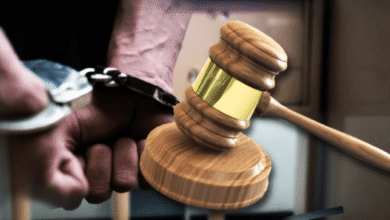Second Degree Burglary Charge Dropped in St. Louis for Lack of Probable Cause

When someone is arrested and charged with a crime, it’s easy to assume there must be enough evidence to support the case. But in some situations, the legal process reveals that a charge was not properly supported from the start. A recent case involving second-degree burglary in St. Louis highlights how a charge can be dropped for lack of probable cause. With the help of professionals and an experienced criminal defense attorney in Missouri, the individual avoided further legal consequences after the charge was dismissed early in the legal process.
Overview of the Situation
In this case, an individual in St. Louis was arrested and charged with second-degree burglary. Authorities claimed the person had entered a private building unlawfully, with the intention of committing a crime. However, upon review, the charge was dropped because there was no probable cause to move forward. This decision prevented a trial and removed the possibility of a criminal conviction.
See also: Understanding Zoning Laws in Real Estate
Understanding Second-Degree Burglary in St. Louis
Second-degree burglary in Missouri refers to a person unlawfully entering or staying inside a building with the intent to commit a crime inside. It does not involve violence or use of weapons, which would elevate the charge to first-degree burglary.
To be charged, prosecutors must show that the person:
- Entered or remained in a building unlawfully
- Intended to commit a crime inside
Second-degree burglary is classified as a Class D felony in Missouri. Penalties can include:
- Prison time ranging from one to seven years
- Fines up to $10,000
- Probation or parole
- A permanent mark on the criminal record
These consequences can affect a person’s ability to find work, housing, or financial support. That’s why properly reviewing the facts before moving forward with a case is so important.
Probable Cause Explained
Probable cause is the legal standard that law enforcement and prosecutors must meet before someone can be charged or arrested. It means there must be a reasonable belief that a crime was committed and that the person in question was involved.
Key points about probable cause include:
- It must be based on evidence, not just suspicion
- It’s stronger than “reasonable suspicion,” which allows brief police stops but not full arrests
- It is needed to obtain arrest warrants or search warrants
In Missouri, like in other states, probable cause must be backed by facts. Courts consider the totality of the circumstances looking at all available details to decide if charges are legally justified.
Reasons for Lack of Probable Cause
In this case, the court found that the arrest lacked proper support. Several common issues can lead to this outcome, including:
1. Insufficient Evidence at the Time of Arrest
Police may act quickly without collecting enough facts to support the charge.
2. Weak or Conflicting Witness Statements
If witnesses offer different versions of events or seem unreliable, their statements may not support probable cause.
3. No Forensic Evidence
In burglary cases, lack of fingerprints, surveillance footage, or other physical evidence can weaken the case.
4. Mistaken Identity or False Accusation
Sometimes people are wrongly accused based on assumptions or misleading details.
5. Unlawful Police Conduct
Searches done without a warrant or consent may violate constitutional rights. If evidence is gathered improperly, it can’t be used in court.
6. No Clear Intent to Commit a Crime
If the accused had a lawful reason to be on the property, or no clear plan to commit a crime, the charge does not stand.
In this situation, the criminal defense attorney reviewed the evidence and raised these concerns. They worked with the court to challenge the state’s claims and argued that the arrest was not backed by enough facts.
The Process of Charges Being Dropped
The steps to having a charge dropped often follow a detailed legal review:
- Arrest and Booking – The accused is arrested based on the initial report.
- Prosecutor’s Review – The prosecutor examines whether there’s enough evidence to move forward.
- Defense Challenges the Case – A defense attorney questions the strength of the evidence.
- Motion to Dismiss – The defense may file a motion asking the court to dismiss the charge due to lack of probable cause.
- Negotiations and Court Decision – The defense and prosecution may discuss the case, or the judge may decide to dismiss.
In this case, the lack of strong evidence played a key role in the dismissal.
Implications of Dropped Charges
For the Accused Person:
- No Conviction – Avoiding a trial means the person does not have a criminal conviction.
- No Record from This Incident – There is no legal penalty or sentence.
- Chance for Expungement – In many cases, the person can later request the record of the arrest to be cleared.
For the Justice System:
- Protection of Rights – The case shows the system working to prevent wrongful charges.
- Focus on Evidence-Based Prosecution – Law enforcement is reminded to follow procedures and gather strong facts before arresting someone.
- Trust in Legal Process – Ensuring only supported charges go to trial helps maintain public confidence in the courts.
The Bottom Line
Second-degree burglary is a serious charge with lasting consequences. But the law also provides strong protections for individuals, including the need for probable cause. In the recent St. Louis case, the dismissal of the charge shows how careful legal review can protect people from unsupported accusations. With the help of a criminal defense lawyer and services like Rose Legal Services, those facing charges can challenge the case and avoid unnecessary harm when the law isn’t properly followed.



